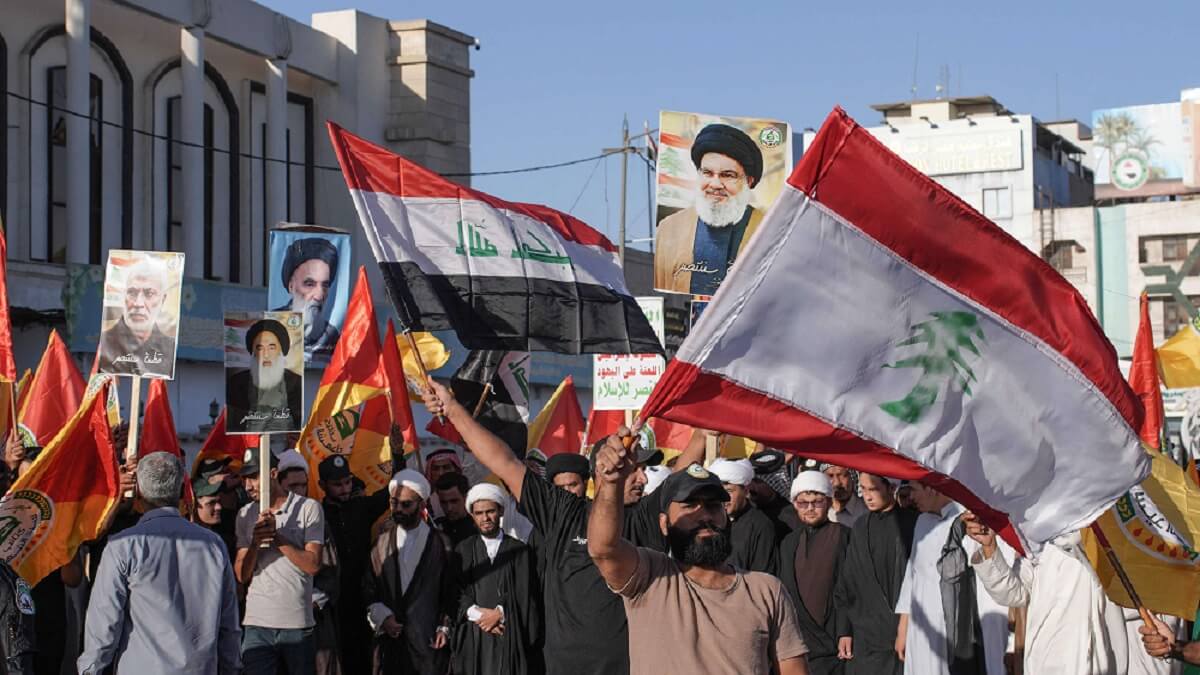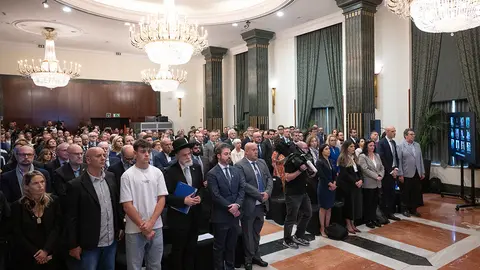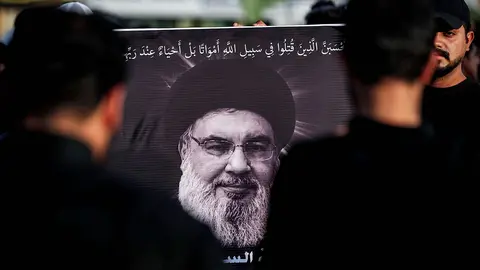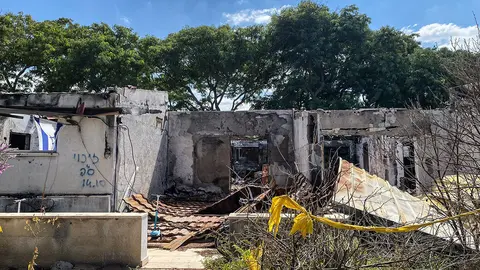Israel eliminates leader of Hezbollah's logistics network and deploys fourth division in southern Lebanon

This morning, the Israel Defence Forces confirmed the death of Suheil Hussein Husseini, head of Hezbollah's logistics network, in a targeted strike in Beirut carried out by fighter jets under precise intelligence guidance.
According to the Israeli military, Husseini headed the Lebanese Shi'a militia's logistics unit, managing the group's budget and organising its various operational systems. Husseini also played a key role in facilitating arms transfers between the Islamic Republic of Iran and Hezbollah, overseeing the distribution of smuggled weapons to different units within the terrorist group and managing the transportation and allocation of resources.
The logistics unit headed by Husseini, a member of Hezbollah's Jihad Council, also included Hezbollah's research and development division, which is involved in the production of precision-guided missiles and the storage and transport of weapons inside Lebanon. His duties also included launching attacks against Israel from Lebanon and Syria.
Husseini's death is part of a series of targeted eliminations in Dahieh, Hezbollah's stronghold in south Beirut. In recent weeks, Israel has launched several strikes against key figures in the group, including its leader, Hassan Nasrallah, and his eventual successor, Hashem Safieddine, as well as the leadership of the elite Radwan Force.

In addition to the group's leadership, Israel has also launched strikes against targets belonging to Hizbollah's intelligence headquarters in Beirut, including intelligence gathering facilities, command centres and weapons storage facilities.
Secondary explosions have been detected following Israeli air strikes, indicating the presence of large quantities of weaponry, sometimes near or under residential buildings in the Lebanese capital. According to the IDF, Hizbollah moved these large weapons stockpiles from the Bekaa Valley and other areas of Lebanon to the Dahieh district of Beirut in order to protect them.
An Israeli strike against a Hezbollah site in Beirut sets off a rocket and secondary explosions.
— Joe Truzman (@JoeTruzman) October 6, 2024
--
Nasrallah's strategy to handcuff Lebanon to Hamas is turning out to be a strategic blunder. Lebanese should demand why they are being held hostage by an Iranian-directed group. pic.twitter.com/Sro0Zdf0fm
In addition to Beirut, in the last few hours 100 Israeli Air Force planes carried out a massive airstrike targeting more than 120 locations used by Hezbollah in southern Lebanon, including units of Hezbollah's Southern Front, the Radwan Force and the terrorist group's intelligence headquarters in southern Lebanon. This massive attack came after Hezbollah launched more than 100 rockets into northern Israel.
Meanwhile, the IDF has deployed a fourth division in southern Lebanon to continue ground operations, described by the army as ‘limited, localised and targeted’. The aim of these incursions is to destroy Hezbollah infrastructure in the border area, especially in villages adjacent to Israel, allowing the safe return of citizens from the north who have been forced to evacuate.
Troops of the Golani Brigade captured a Hezbollah fighting position in southern Lebanon, located in an olive grove and an adjacent home, the IDF says.
— Emanuel (Mannie) Fabian (@manniefabian) October 8, 2024
The military says the troops found a primed mortar launcher aimed at Israel, ammunition, tunnel infrastructure, and resting… pic.twitter.com/8hYZTyf3jg
Another of Israel's objectives with its operation in Lebanon is to eliminate Hezbollah's presence south of the Litani River, some 30 kilometres from the border, as mandated by UN Resolution 1701 adopted at the end of the Second Lebanon War.
According to The Times of Israel, the move will add thousands of troops to Israel's ground offensive, which is estimated to involve more than 15,000 soldiers.
Israel commemorates 7 October anniversary under attack on three fronts
The silence and mourning in the streets of Israel on the first anniversary of the 7 October massacres has been interrupted by the sound of anti-aircraft sirens as a result of several attacks launched from Gaza, Yemen and Lebanon.
Hezbollah, Hamas and the Houthis - regional proxies of the Islamic Republic of Iran - have used this key day to attack the Jewish state, using psychological warfare just a year after 1,200 people were killed and more than 200 taken hostage.
Tomorrow marks a year since Hezbollah dragged the region into a multi-front war and began their constant attacks on Israeli civilians.
— Israel Defense Forces (@IDF) October 7, 2024
Less than an hour until October 8, Hezbollah launched a number of projectiles toward central Israel. pic.twitter.com/bGQPDJ8GC0
Despite the destruction wrought in the Gaza Strip following Hamas massacres in southern Israel, the Palestinian terrorist group and its regional allies have celebrated the anniversary.
El principal presentador de noticias en Al Jazeera @jamalrayyan celebrando abiertamente la masacre del 7 de octubre.
— Gabriel Chocron (@GabrielChocron) October 7, 2024
Para ellos - quemar vivas a personas, secuestrar bebés, ejecutar a ancianos, violar mujeres y volar a pedazos a jóvenes con granadas - es una fuente de "dignidad… pic.twitter.com/y71xWbxtUA
Hamas's attack has also been praised by Jamal Rayyan, a leading anchorman for Qatar's Al Jazeera, who claimed that the terror group's massacres restored ‘the dignity and prestige of the nation’ alongside an AI-generated photo of fireworks and a large ‘7’ shining over the Dome of the Rock in Jerusalem.











